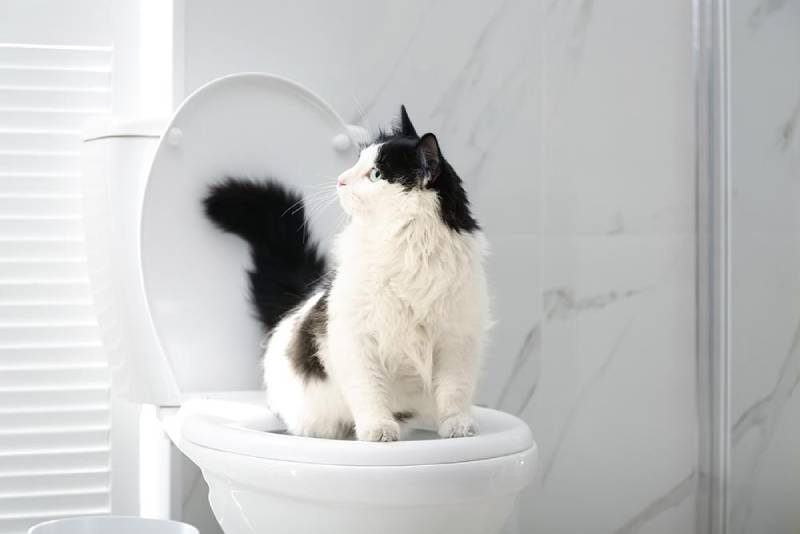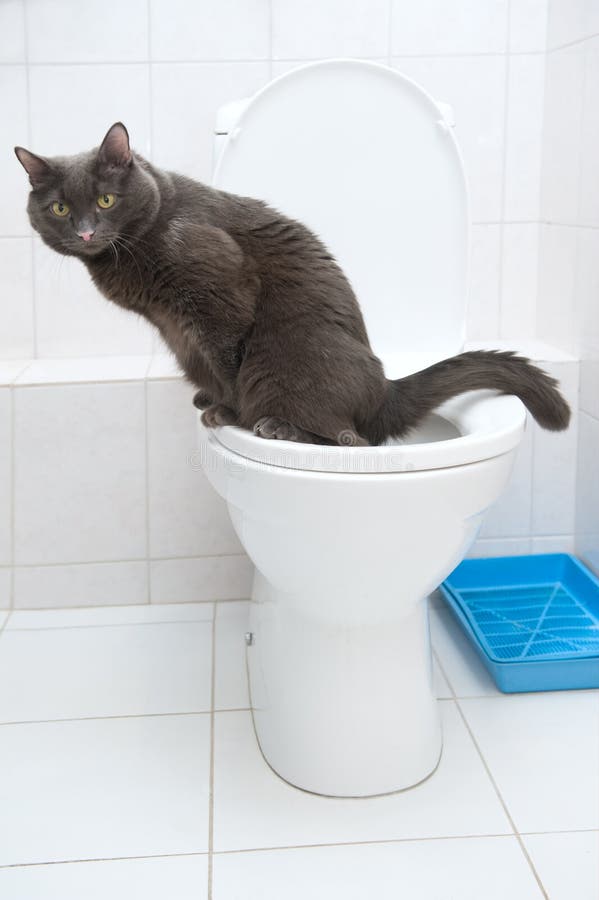The Risks of Flushing Cat Poop in Your Toilet - Preventive Steps
The Risks of Flushing Cat Poop in Your Toilet - Preventive Steps
Blog Article
The article down below relating to Don’t flush cat feces down the toilet is exceptionally informative. Check it out for your own benefit and decide what you think about it.

Introduction
As feline proprietors, it's necessary to be mindful of exactly how we get rid of our feline close friends' waste. While it may seem hassle-free to purge feline poop down the toilet, this technique can have harmful repercussions for both the atmosphere and human health and wellness.
Alternatives to Flushing
Luckily, there are much safer and extra accountable ways to take care of pet cat poop. Consider the complying with options:
1. Scoop and Dispose in Trash
The most common approach of disposing of pet cat poop is to scoop it into a biodegradable bag and toss it in the trash. Make certain to utilize a devoted clutter scoop and dispose of the waste immediately.
2. Use Biodegradable Litter
Go with eco-friendly feline clutter made from materials such as corn or wheat. These trashes are eco-friendly and can be safely dealt with in the trash.
3. Hide in the Yard
If you have a yard, think about burying pet cat waste in an assigned area far from vegetable gardens and water resources. Make sure to dig deep enough to avoid contamination of groundwater.
4. Mount a Pet Waste Disposal System
Invest in a pet waste disposal system especially made for pet cat waste. These systems make use of enzymes to break down the waste, reducing odor and ecological effect.
Health and wellness Risks
In addition to environmental problems, purging feline waste can also pose wellness dangers to people. Cat feces might consist of Toxoplasma gondii, a parasite that can create toxoplasmosis-- a potentially extreme disease, particularly for expecting women and people with weakened body immune systems.
Environmental Impact
Purging cat poop introduces unsafe microorganisms and bloodsuckers into the water, positioning a substantial risk to water ecological communities. These contaminants can negatively influence marine life and concession water quality.
Final thought
Accountable pet dog possession extends beyond offering food and shelter-- it likewise includes appropriate waste monitoring. By avoiding purging pet cat poop down the commode and going with alternate disposal techniques, we can decrease our environmental footprint and shield human wellness.
Why You Should Never Flush Cat Poop Down the Toilet
A rose by any other name might smell as sweet, but not all poop is created equal. Toilets, and our sewage systems, are designed for human excrement, not animal waste. It might seem like it couldn’t hurt to toss cat feces into the loo, but it’s not a good idea to flush cat poop in the toilet.
First and foremost, assuming your cat uses a litter box, any waste is going to have litter on it. And even the smallest amount of litter can wreak havoc on plumbing.
Over time, small amounts build up, filling up your septic system. Most litter sold today is clumping; it is made from a type of clay that hardens when it gets wet. Ever tried to scrape old clumps from the bottom of a litter box? You know just how cement-hard it can get!
Now imagine just a small clump of that stuck in your pipes. A simple de-clogger like Drano isn’t going to cut it. And that means it’s going to cost you big time to fix it.
Parasitic Contamination
Believe it or not, your healthy kitty may be harboring a nasty parasite. Only cats excrete Toxoplasma in their feces. Yet it rarely causes serious health issues in the cats that are infected. Most people will be fine too if infected. Only pregnant women and people with compromised immune systems are at risk. (If you’ve ever heard how women who are expecting are excused from litter cleaning duty, Toxoplasma is why.)
But other animals may have a problem if infected with the parasite. And human water treatment systems aren’t designed to handle it. As a result, the systems don’t remove the parasite before discharging wastewater into local waterways. Fish, shellfish, and other marine life — otters in particular — are susceptible to toxoplasma. If exposed, most will end up with brain damage and many will die.
Depending on the species of fish, they may end up on someone’s fish hook and, ultimately on someone’s dinner plate. If that someone has a chronic illness, they’re at risk.
Skip the Toilet Training
We know there are folks out there who like to toilet train their cats. And we give them props, it takes a lot of work. But thanks to the toxoplasma, it’s not a good idea.

We were shown that report about How to Dispose of Cat Poop and Litter Without Plastic Bags from an acquaintance on a different domain. Sharing is caring. You never know, you may very well be helping someone out. Many thanks for your time spent reading it.
Details Here Report this page